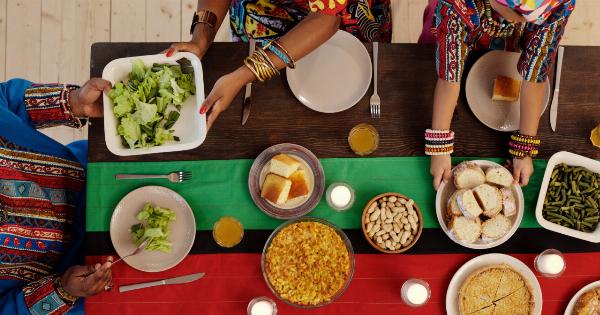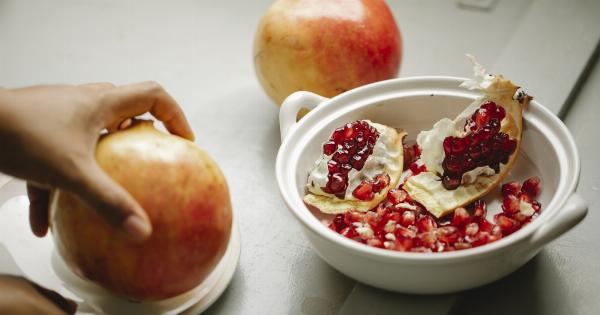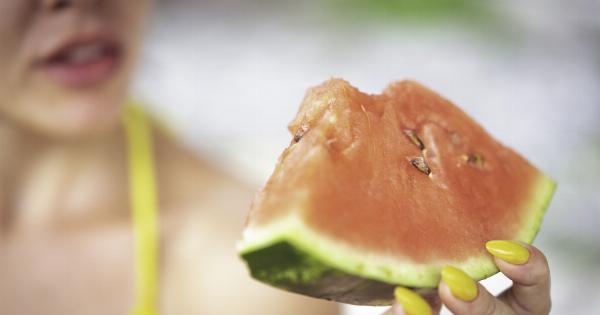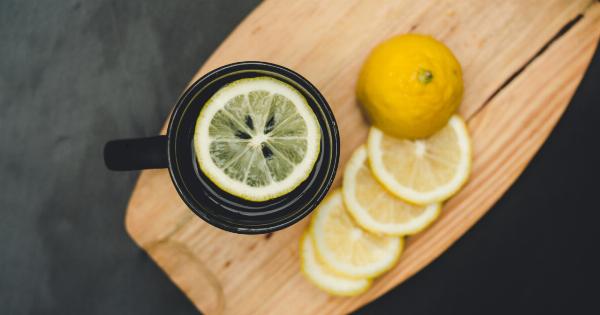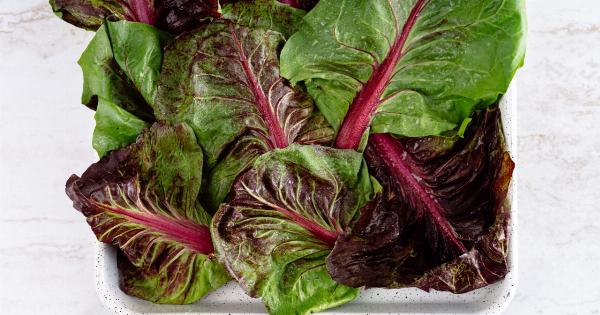Feeling bloated is not only uncomfortable, but it can also affect your overall well-being. Bloating is commonly caused by excess gas production or an abnormal increase in abdominal pressure.
Certain foods are known to contribute to bloating and should be avoided if you are prone to this uncomfortable condition. Fortunately, there are also dietary changes you can make to find relief from bloating. In this article, we will discuss the foods that cause bloating and provide you with a diet plan that can help alleviate your symptoms.
1. Beans and Legumes
Beans and legumes are known for their high fiber content, which is generally good for digestion. However, they also contain a type of sugar called oligosaccharides that can be difficult for some people to digest properly.
When these sugars reach the large intestine undigested, they are fermented by gut bacteria, leading to gas and bloating. If you experience bloating after consuming beans or legumes, you may want to limit your intake or opt for easily digestible alternatives like lentils or tofu.
2. Cruciferous Vegetables
Vegetables like broccoli, cabbage, Brussels sprouts, and cauliflower are highly nutritious, but they also contain a type of carbohydrate called raffinose. Similar to oligosaccharides, raffinose is difficult to digest and can cause gas and bloating.
If you find these vegetables troublesome, try cooking them thoroughly or substituting them with vegetables like spinach, zucchini, or cucumber, which are easier to digest.
3. Carbonated Drinks
Carbonated beverages such as soda and sparkling water release carbon dioxide gas into your stomach, which can cause bloating and discomfort.
Additionally, these drinks often contain high amounts of sugar or artificial sweeteners, which can contribute to bloating. It is best to avoid carbonated drinks altogether and opt for water, herbal tea, or infused water to stay hydrated without the unwanted bloating.
4. Dairy Products
Dairy products, especially those containing lactose, can cause bloating and discomfort in individuals who are lactose intolerant. Lactose intolerance occurs when the body is unable to properly digest lactose, the sugar found in milk and dairy products.
If you suspect you may be lactose intolerant, try opting for lactose-free alternatives or consider other sources of calcium and protein like fortified plant-based milks or tofu.
5. Fried and Fatty Foods
Fried and fatty foods are not only unhealthy for your overall well-being but can also contribute to bloating. These types of foods are digested slowly, causing food to sit in your stomach for longer periods, leading to bloating and discomfort.
Additionally, fried foods often contain high amounts of salt, which can cause water retention and further contribute to bloating. Opt for healthier cooking methods such as baking, grilling, or steaming and incorporate more lean proteins like chicken, fish, or tofu into your diet.
6. Artificial Sweeteners
Artificial sweeteners, commonly found in sugar-free products and diet drinks, can be difficult for some people to digest properly.
They are known as “fermentable oligosaccharides, disaccharides, monosaccharides, and polyols,” or FODMAPs for short. Consuming foods with FODMAPs can lead to bloating and other digestive symptoms.
Be mindful of foods labeled as “sugar-free” or “diet” and read the ingredient list to avoid artificial sweeteners like sorbitol, xylitol, and aspartame.
7. Onions and Garlic
Onions and garlic are widely used in cooking for their flavor-enhancing properties. However, they also contain a type of carbohydrate called fructans, which some people find difficult to digest.
Fructans can cause bloating, gas, and other digestive symptoms, especially in those with a sensitive gut. If onions and garlic give you trouble, experiment with using alternative herbs and spices to add flavor to your meals, such as basil, oregano, or ginger.
8. Processed Foods
Processed foods are often high in sodium, preservatives, and additives, which can lead to water retention and bloating. They also tend to be low in fiber and nutrients, making them harder to digest.
Instead of relying on packaged and processed foods, opt for whole, unprocessed foods like fruits, vegetables, whole grains, and lean proteins. These natural foods are not only more nutritious but also easier on your digestive system.
9. Refined Carbohydrates
Refined carbohydrates, such as white bread, pasta, and pastries, are stripped of their fiber content during the refining process. This makes them easier to digest but also causes quick spikes in blood sugar levels, leading to bloating and discomfort.
Choose whole grain alternatives like whole wheat bread, brown rice, and quinoa to provide your body with the necessary fiber and nutrients without the unpleasant bloating.
10. Alcohol
Alcohol is known to contribute to bloating and can also irritate the stomach lining, leading to indigestion and discomfort. It can also cause dehydration, which may worsen bloating symptoms.
Limit your alcohol consumption and opt for other alternatives like mocktails, herbal tea, or infused water to enjoy a refreshing beverage without the potential bloating effects.
Follow this Diet for Relief
Apart from avoiding the foods mentioned above, incorporating other dietary changes can also help provide relief from bloating. Here’s a diet plan you can follow to support healthy digestion and minimize bloating:.
1. Eat Smaller, More Frequent Meals
Instead of consuming large meals, try eating smaller portions more frequently throughout the day. This allows your body to digest food more efficiently and prevents the accumulation of excess gas in your stomach.
Plan your meals and snacks in advance to ensure you have nutritious options readily available.
2. Incorporate Probiotic-Rich Foods
Probiotics are beneficial bacteria that help maintain a healthy balance in your gut. Including probiotic-rich foods in your diet can promote better digestion and reduce bloating.
Yogurt, kefir, sauerkraut, kimchi, and tempeh are excellent sources of probiotics that can be easily incorporated into your daily meals.
3. Increase Fiber Intake
Fiber plays a crucial role in maintaining a healthy digestive system. It adds bulk to your stool, promotes regular bowel movements, and helps prevent constipation, which can contribute to bloating.
Include fiber-rich foods such as fruits, vegetables, whole grains, and legumes in your meals. However, gradually increase your fiber intake to avoid abrupt changes that may cause temporary bloating.
4. Stay Hydrated
Drinking plenty of water is essential for maintaining good digestive health. It helps soften your stool, preventing constipation and bloating. Aim to drink at least eight glasses of water per day.
You can also infuse your water with fresh fruits or herbs for added flavor and potential digestive benefits.
5. Chew Thoroughly and Eat Slowly
Proper chewing is crucial for breaking down food and aiding digestion. Eating too quickly can cause you to swallow air, leading to bloating. Take your time to chew your food thoroughly and savor the flavors.
This will also help you feel more satisfied with smaller portions and prevent overeating.
6. Limit Gas-Producing Foods
In addition to the specific foods mentioned earlier, some people may be more sensitive to other gas-producing foods like bell peppers, cucumbers, and apples.
Pay attention to your body’s response to these foods and limit or avoid them if necessary. Keep a food diary to track your symptoms and identify any patterns between your diet and bloating episodes.
7. Manage Stress
Stress can disrupt the normal functioning of your digestive system and contribute to bloating. Practice stress-management techniques such as deep breathing exercises, yoga, meditation, or engaging in activities that help you relax.
Taking care of your mental and emotional well-being is just as important as your physical health.
By avoiding the foods that cause bloating and following a diet plan that supports healthy digestion, you can find relief from this uncomfortable condition. Remember to listen to your body and make adjustments as needed.
If your symptoms persist or worsen, it is recommended to consult with a healthcare professional for further evaluation and guidance.








